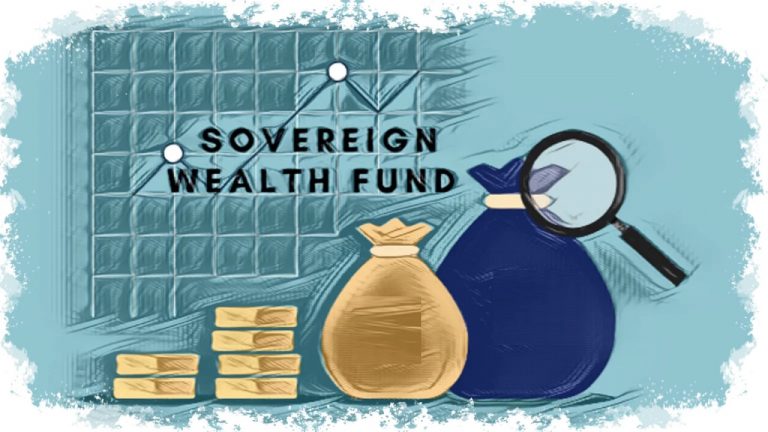
Norges Bank Investment Management (NBIM), which oversees the world’s largest sovereign wealth fund, reported a first-quarter loss of 415 billion Norwegian kroner ($40 billion), with tech-sector weakness and renewed trade tensions, particularly from Washington, pulling down returns and adding fresh volatility to global markets.
“Our equity investments had a negative return, largely driven by the tech sector,” NBIM CEO Nicolai Tangen said Thursday. “The quarter has been impacted by significant market fluctuations.”
The fund’s total value stood at 18.53 trillion kroner at the end of March, with equities—accounting for 70% of holdings—posting a 1.6% loss. The broader decline in value, however, was compounded by significant foreign exchange headwinds, especially the strengthening of the krone, which knocked off 879 billion kroner from the fund’s paper value. Overall, the fund’s market worth contracted by 1.215 trillion kroner through the quarter.
Register for Tekedia Mini-MBA edition 19 (Feb 9 – May 2, 2026).
Register for Tekedia AI in Business Masterclass.
Join Tekedia Capital Syndicate and co-invest in great global startups.
Register for Tekedia AI Lab.
While fixed-income investments returned a modest 1.6% and unlisted real estate delivered 2.4%, these gains were not enough to offset the damage from equities, particularly from the tech sector where NBIM holds significant positions in companies like Nvidia, Meta, Alphabet, Microsoft, Amazon, and Tesla.
Trump’s Tariff Strategy Sparks Global Market Anxiety
This is the second time in just three months that major market players have had to reckon with the weight of U.S. President Donald Trump’s trade agenda. While tensions with Beijing are not new, Trump’s revived focus on imposing sweeping tariffs on Chinese goods, and threatening similar measures against European economies, has stirred fears that the global economy could be pushed into a fresh slowdown.
NBIM’s exposure to tech has made it especially vulnerable to these developments. The March tech sell-off, which erased $2.7 trillion in market value from industry giants, was driven in large part by fears that Trump’s tariffs would disrupt U.S.-China supply chains and drive up operational costs for American companies.
NBIM’s sharp quarterly decline followed closely on the heels of a January market tremor triggered by a surprising leap in Chinese AI development. DeepSeek, a little-known Chinese startup, developed a powerful large language model at a fraction of the cost of OpenAI’s ChatGPT—an announcement that rocked investor confidence in the U.S. tech sector’s future pricing power and dominance.
Analysts say the fund’s losses could deepen if Trump’s rhetoric translates into action. Trump recently slammed Beijing for its “ridiculous” 145% tariffs on imported cars and suggested that the U.S. will impose a retaliatory tariff—not as high, but “nowhere near zero.” In what many analysts believe is an orchestrated strategy, Scott Bessent, a former Trump campaign economic adviser, had earlier described the U.S.-China trade setup as “unsustainable,” suggesting the administration wants Beijing to return to the negotiating table without Trump making a direct overture.
Trump added that he expects to “get along just nicely” with President Xi Jinping, suggesting there’s still room for a diplomatic solution. But in the meantime, the uncertainty is weighing on markets.
NBIM Faces Test of Long-Term Strategy
NBIM, which manages Norway’s oil revenue surplus and invests across more than 8,600 companies in 63 countries, has traditionally emphasized its long-term horizon, staying resilient through multiple cycles. Last year, the fund recorded its best performance on record with a $222 billion annual gain, driven by the AI-fueled rally in tech stocks.
But this year’s first-quarter stumble shows that even the most diversified, well-capitalized funds are susceptible to the shifting geopolitical winds. A protracted trade war, especially one involving retaliatory tariffs on consumer electronics, semiconductors, and automotive components, could severely disrupt the valuations of companies central to NBIM’s portfolio.
Currency Strength Adds Pressure
While equities bore the brunt, Norway’s stronger krone delivered another blow. Gains against the U.S. dollar and other major currencies during the quarter further reduced the fund’s value on paper by nearly 900 billion kroner. This dynamic underscores how even market-neutral or positive performances in foreign stocks can translate to losses once converted into Norwegian currency.
NBIM’s management has played down the loss as part of normal market fluctuations, reaffirming its commitment to long-term investing. However, with Trump pushing a more confrontational trade stance and with China still working to reassert itself in global tech, the fund faces a delicate stretch ahead.
Markets are now watching whether the White House and Beijing can tone down the saber-rattling. But if not, as the NBIM report illustrates, more pain may be coming—not just for sovereign investors, but for global markets already struggling with AI disruption, inflation, and the return of great-power economic rivalry.



